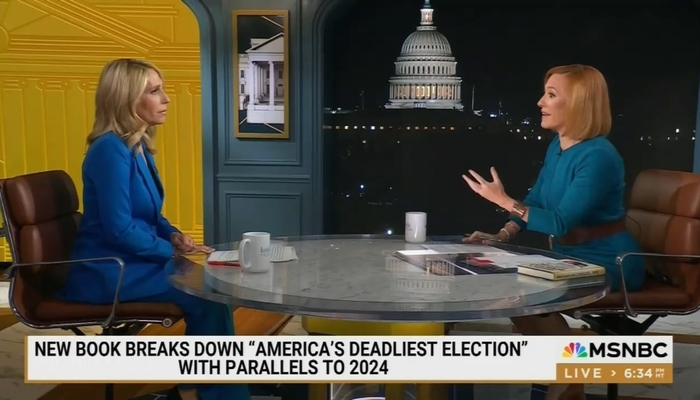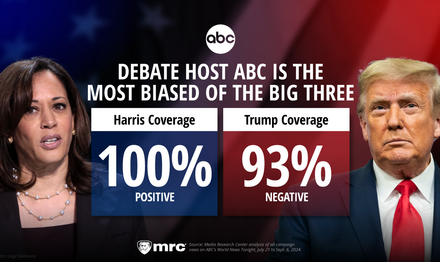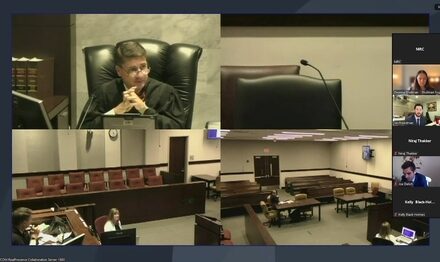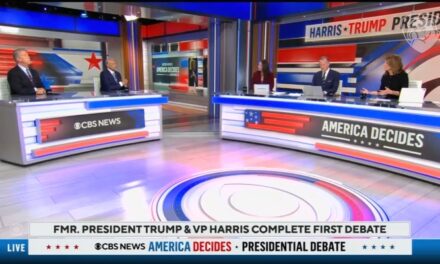We support our Publishers and Content Creators. You can view this story on their website by CLICKING HERE.

The ratings competition between CNN and MSNBC took a back seat on Monday as CNN’s Dana Bash traveled over to Inside with Jen Psaki to promote her new book on the 1872 Louisiana gubernatorial election and allege that the imagined voter suppression of today is on par with the real voter suppression of back then when such tactics included literal race massacres.
Bash and co-author David Fisher titled their book America’s Deadliest Election: The Cautionary Tale of the Most Violent Election in American History, and Bash recalled to Psaki that the Democrats of that era, “were trying to do whatever they could to suppress the vote. The new black vote and in Louisiana, and other states, but this particular story is how they were successful in doing so. They realized the only way to keep society from changing so drastically was to make sure that blacks didn’t vote.”
She also recalled how, “they were intimidated. They were threatened, they were disenfranchised, and they were murdered, in some cases, a massacre.”
Bash was almost certainly referring to the Colfax Massacre and the Battle of Liberty Place, which happened in 1873 and 1874, respectively.
Psaki then observed, “There are so many racial comparisons, you just outline them, to present day today as well, where we see with voter suppression around the country. You’ve answered a bit there, but how do you look at those comparisons in terms of how rhetoric is used to kind of suppress the vote, to intimidate people. To make immigrants sound like they are bringing violence to our country. How do you compare this time to that time?”
The correct answer would’ve been to say that asking for voter identification or not believing in months of early voting is not even in the same universe as race massacres, but Bash answered differently, “Again, very similar. Very similar. There were discussions about, rants, about people coming from the Southern border back then just as they are now, and, you know, it started in 1872 and then it went up to 1876, which people might be a little bit more familiar with because of the, parallels there between what happened then and 2021.”
Bash then transitioned into talking about the 1876 presidential election, but while she and Psaki may be claiming to honor the victims of past crimes by telling their story, they were trivializing them by fearmongering for the sake of trying to get people to the polls in order to defeat Republicans.
Here is a transcript for the September 9 show:
MSNBC Inside with Jen Psaki
9/9/2024
8:33 PM ET
DANA BASH: So, they were trying to do whatever they could to suppress the vote. The new black vote and in Louisiana, and other states, but this particular story is how they were successful in doing so. They realized the only way to keep society from changing so drastically was to make sure that blacks didn’t vote. And they were intimidated. They were threatened, they were disenfranchised, and they were murdered, in some cases, a massacre.
JEN PSAKI: There are so many racial comparisons, you just outline them, to present day today as well, where we see with voter suppression around the country. You’ve answered a bit there, but how do you look at those comparisons in terms of how rhetoric is used to kind of suppress the vote, to intimidate people. To make immigrants sound like they are bringing violence to our country. How do you compare this time to that time?
BASH: Again, very similar. Very similar. There were discussions about, rants, about people coming from the Southern border back then just as they are now, and, you know, it started in 1872 and then it went up to 1876, which people might be a little bit more familiar with because of the, parallels there between what happened then and 2021.
When things were so bad in Louisiana and three other states that they sent two slates of electors to Washington. And there was a debate about what the vice president’s role was. Was it something that is more ceremonial or could the vice president choose the electoral slates.
JEN PSAKI: Sounds familiar.
BASH: And they decided then it was ceremonial, but another familiar thing that happened back then, there, one of the riots in the streets of New Orleans erupted in chants, “hang him, hang him” about the opponent that they were trying to stage a coup against that was actually the rightly elected governor.
PSAKI: Very eerie.

 Conservative
Conservative  Search
Search Trending
Trending Current News
Current News 





